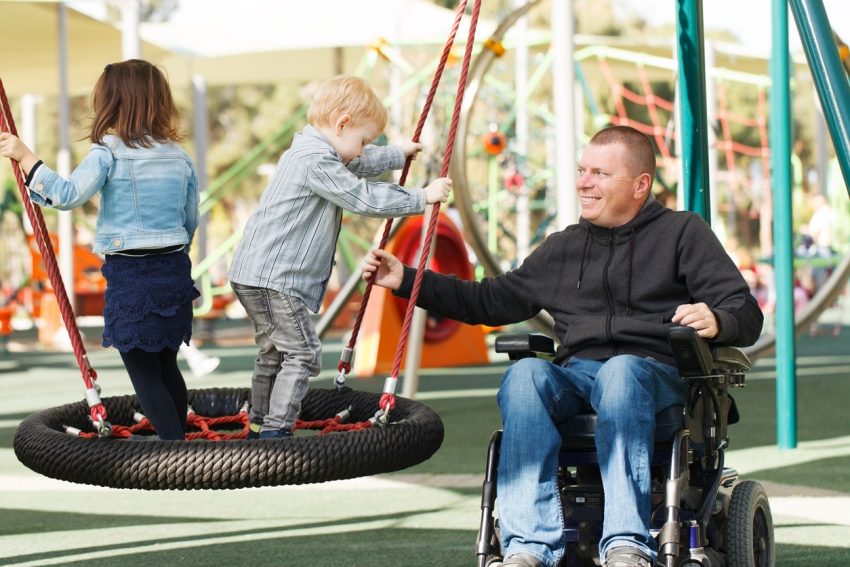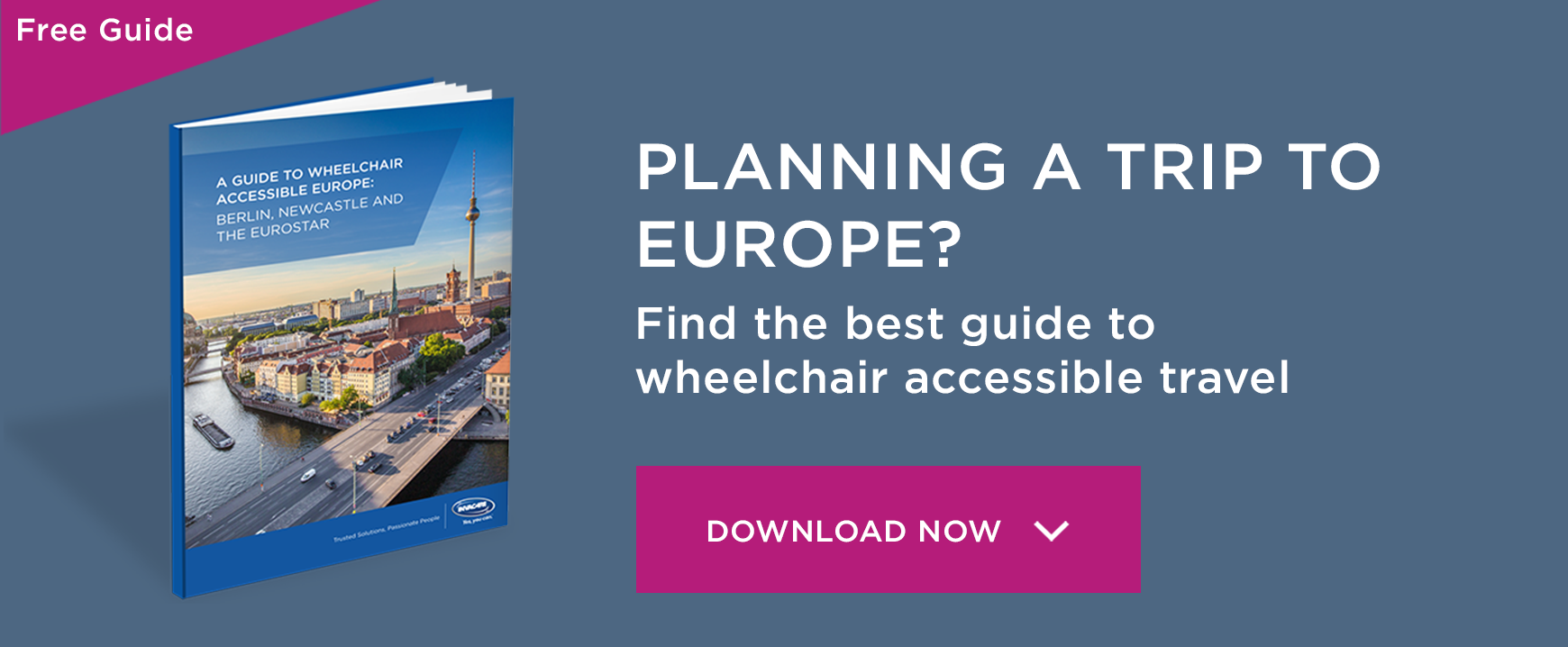Parenting on Wheels: Tips on How to Make it Easier

Parenting on wheels is like parenting in general- it will be one of the most challenging things you ever do. Whether you have been in a wheelchair for a while, and are considering having children or if you are already a parent, but have had a recent spinal cord injury, you may be wondering how difficult parenting from a wheelchair may be.
At first, you may think that the physical aspect will be too challenging. But it’s important to remember that all parents have challenges in raising their children, no matter their abilities. Most likely your challenges won’t be more, but they will be different than other people’s.
By making a few adaptations to your lifestyle, parenting on wheels will be no more difficult than parenting in general.
Infants and Toddlers
Taking care of infants and toddlers is the most challenging stage, physically. Most of the equipment that you use for babies will have to be altered or adapted. For example, you may have to change the height of your changing table.
Special cribs have been designed for parents who use wheelchairs. It’s better to purchase a crib that has been specially made for this purpose to ensure it meets all safety standards, rather than trying to construct your own.
One of the most physically challenging things to do is to pick up a baby or small child who is playing on the floor. Some people create a play area inside a large hamper. That way the baby can play in a contained space and then be picked up from the floor with ease.
And like any parent of an infant or toddler, you will find that fatigue may be your biggest problem. Parenting is tiring enough, but parenting on wheels can use even more energy. Give yourself permission to take breaks. When your child naps, you nap, too. Remember to take care of yourself.
School Aged Children
Parenting school aged children doesn’t have as many physical demands, but it does bring a new set of challenges. One of this is attending school functions. Some school functions are not wheelchair friendly.
Most schools should be accessible since they also have to accommodate students in wheelchairs. However, you may still have difficulty finding a good seat at a school play or concert. Or the field trip you want to chaperone may not be as accessible as you would like.
Having the foresight to call ahead and make sure you have all the details can save you a lot of trouble. If you have a plan in place and know in advance where to go for accessible entrances and seating, you will be able to focus on enjoying the event, not navigating your environment.
Some parents of older children become concerned that their disability will have an adverse effect on their children. Maybe they will be seen as a burden. Maybe their children will worry about their parent’s health and not enjoy their childhood.
In reality, many children who are raised by a parent with a disability often become more responsible and compassionate than their peers. They learn to be independent, helpful, and considerate of others who have differences.
They will also learn resourcefulness as they see you adapting your environment and keeping a good attitude while having to navigate frequent challenges.
Can I Be Successful?
Parenting on wheels may seem, at times, like a path that’s too difficult to take. But you have to remember that all parents are challenged somehow, and your potential challenges may not be as hard as you imagine.
Parenting is a life-changing experience, and your wheelchair should be the last thing that keeps you from doing and enjoying the things you desire.
Your children may be raised in unconventional and unique ways, but different doesn’t equal bad. What matters more than their parent’s physical abilities is whether not they were loved and cared for. If you teach them to be respectful and kind and give them the tools they need to become successful adults, that’s all that matters.
Author: Annie Beth Donahue is a professional writer with a health and disability focus.







